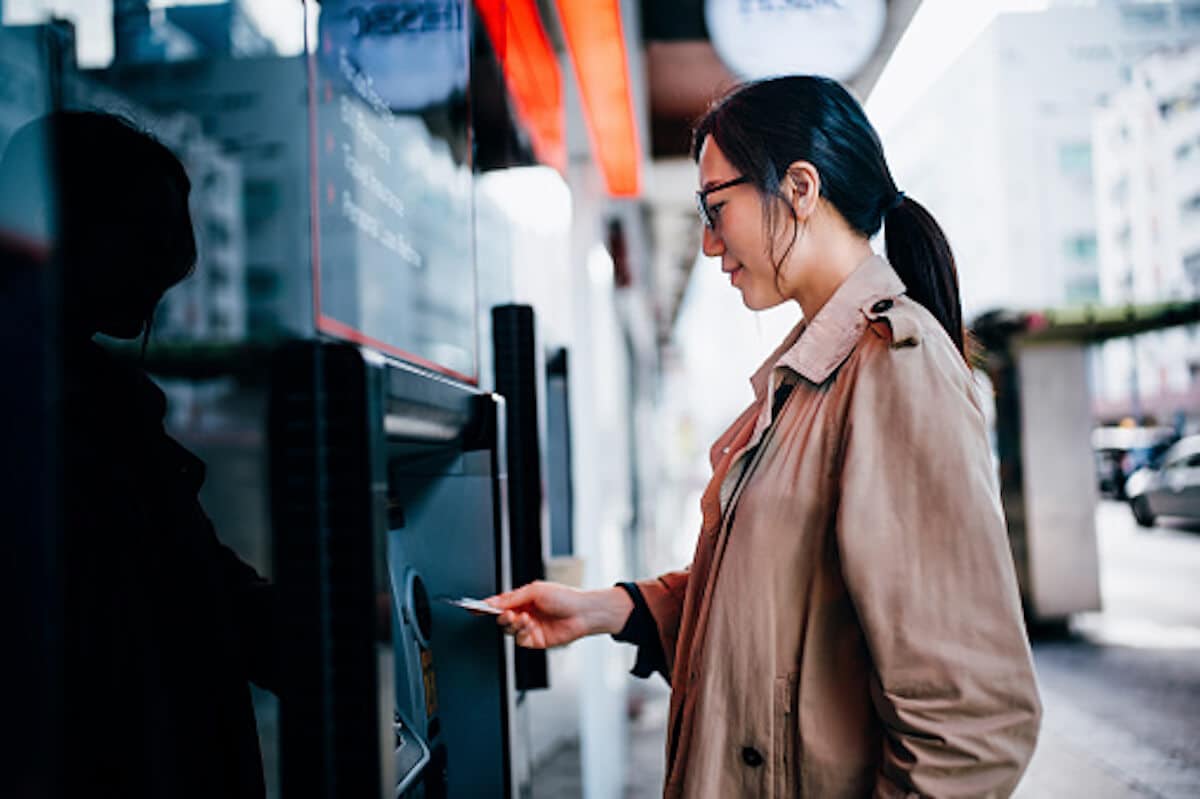6 Min Read | Published: August 30, 2024
Can a Debit Card Be Used as a Credit Card?
Whether you select the credit or debit option when making a purchase, the funds will still be taken from your account. See whether it impacts your credit.

This article contains general information and is not intended to provide information that is specific to American Express products and services. Similar products and services offered by different companies will have different features and you should always read about product details before acquiring any financial product.
At-A-Glance
Running your debit card as credit doesn’t change how funds are deducted from your bank account, but it could delay the debit a few days until the transaction is authorized.
Since debit cards pull money directly from your bank account, the transactions are not reported to credit bureaus and will not impact your credit score.
Credit cards may help build credit if you practice responsible card management by paying on time and keeping credit utilization low.
Using a debit card as your primary payment option is a responsible way to manage finances. After all, a debit card makes it easy to pay bills, and it may keep you from overspending since you can’t typically spend more than you have in your bank account. But it can be confusing when you swipe your debit card at the payment terminal and see an option to select credit or debit.
While choosing credit might feel like you’re tricking the payment processor into not debiting the amount right away, there’s a bit more to the story. In this article, we’ll look at what happens when you choose debit vs. credit at the register, what it means for transaction processing, and how debit and credit cards can impact your credit.
What Happens If You Use Your Debit Card as Credit?
When it comes to transactions, the primary difference between using a debit and a credit card is that debit transactions are immediately deducted from your checking account. In contrast, credit card transactions are added to a ledger of expenses against an established line of credit. You’ll have a balance due each month for those purchases and repay your card issuer for the funds you used.
Whether it’s intentional or by mistake, if you swipe your debit card at a store and choose “credit,” here’s what will happen.
- The vendor will process the payment as credit, meaning you won’t need to input your personal identification number (PIN) but may be required to sign for the transaction, as you would with a credit card.
- The vendor passes the payment request through the credit card processing network, as with credit card purchases.
- The transaction may be marked as “pending” in your bank account until it’s authorized and cleared. At this point, the money is debited from your account like a typical debit card transaction.
Did you know?
Despite the rising popularity of digital wallets, debit card transactions remained the preferred payment for 30% of transactions each month in 2023.1 One of the primary benefits of a debit card is that it encourages fiscally smart spending, which can be used alongside other tips to help you manage your money better.
Can You Use a Debit Card as a Credit Card for Online Transactions?
You can generally use your debit card like a credit card for online transactions by inputting your card number or using a digital wallet. However, it’s important to consider that credit cards offer better security for online payments.
Since your debit card is linked directly to your checking account, if the card is compromised online, it could mean scammers may be able to pull funds directly from your bank account. When you use a credit card, you can see the fraudulent transaction and open a credit card dispute with your card issuer to have it removed.
Can a Debit Card Build Credit?
Regardless of if you choose to run a debit card as debit or credit, it won’t help build credit in the same way a credit card can. Your credit score reflects your ability to use credit, which means borrowing money from a lender and paying it back as agreed.
Since your debit card is tied to your bank account and you’re paying for transactions with your own money, not money you’ve borrowed, no report is shared with credit bureaus. The caveat to this is that some companies offer credit-builder debit cards that work similarly to a secured credit card. If you’re interested in credit-builder debit cards, be sure to do your due diligence and understand the pros and cons before you apply.
How to Build Credit
If you’re interested in establishing or building credit, there are a few key points you’ll need to understand. However, the most important thing to know about building credit is that patience is key. Establishing good credit can take six months or more since you’ll first need to build your credit history.
With patience in mind, these steps may help:
- Always Pay on Time
Since your payment history makes up a hefty percentage of your credit score (an estimated 35% of your FICO® Score), paying on time is rule number one.2 Automatic payments and notifications can help ensure you won’t miss a payment.
- Become an Authorized User
If a family member or friend is willing to add you to their card as an authorized user, it could give your score a boost, assuming they’re managing the card responsibly. As an authorized user of the account, you will see timely payments reflected on your credit history.
- Consider Diverse Credit Options
10% of your FICO Score comes from your credit mix.3 Lenders like to see responsibility across a range of credit types, from lines of credit to loans. If you don’t already have a line of credit, you may be able to use a credit card to build credit.
- Keep Your Utilization Low
Another important element that makes up 30% of your credit score is credit utilization, which measures the percentage of available credit you’re using.4 If you have one credit card with a $1,000 limit and you spend $100, your credit utilization is 10%. Keeping this percentage below 30% (or even lower) can signify responsible spending and repayment patterns, which creditors like to see.
The Takeaway
Even though you may have the option to choose credit when paying with a debit card, the expense will still be debited from your bank account, albeit with a slight delay. Since debit cards don’t borrow money from a lender, transactions won’t be reported to credit bureaus, and your credit score won’t be impacted. If you’re interested in building your score, consider instead getting access to a credit card or other loan that you can pay off on time and in full and keep your credit utilization low for the best outcomes.
1 “2024 Diary of Consumer Payment Choice,” The Federal Reserve
2,3,4 “What’s in my FICO® Score?,” FICO
Brooke Joly is a writer on a mission to unravel the mysteries of personal finance and make them accessible to the everyday reader. When she’s not behind the keyboard, you can find her enjoying the outdoors in Charleston, SC.
All Credit Intel content is written by freelance authors and commissioned and paid for by American Express.
Related Articles
Fundamental Differences Between Credit and Debit Cards
Know the differences between debit and credit cards, Explore the benefits and risks associated with each option to determine which is best suited for you.
How to Get Cash From a Credit Card
Wondering how to get cash from a credit card? Learn how to use a credit card in an ATM, along with some important considerations you’ll want to keep in mind.
How Do I Use a Contactless Card?
Discover the convenience of using a contactless credit card for quick and secure transactions. Learn how to tap and pay and embrace the future of touchless payments.
The material made available for you on this website, Credit Intel, is for informational purposes only and intended for U.S. residents and is not intended to provide legal, tax or financial advice. If you have questions, please consult your own professional legal, tax and financial advisors.









